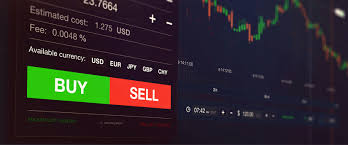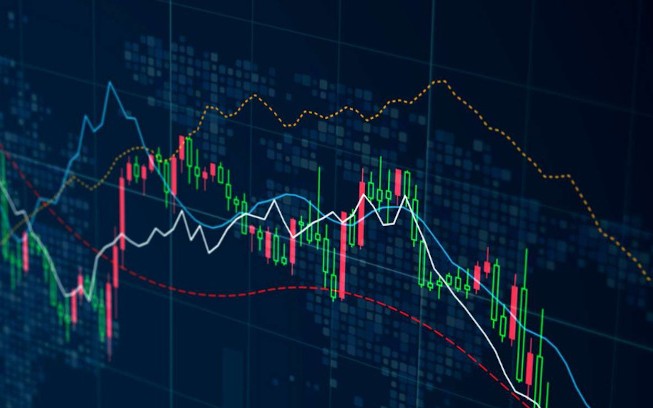
When it comes to Forex trading, the selection of the right broker can significantly impact your success and trading experience. If you are overwhelmed by the choices available in today’s market, you can utilize resources like best broker for forex trading Forex Broker Register to help narrow down your options. Selecting the best Forex broker requires consideration of various factors, including regulatory compliance, trading platforms, fees, and customer support. In this article, we will delve into what makes a broker suitable for Forex trading and how to choose the best one for your needs.
Understanding Forex Trading
Forex, or foreign exchange trading, involves buying and selling currency pairs in order to profit from fluctuations in exchange rates. The Forex market is the largest financial market in the world, with an average daily trading volume exceeding $6 trillion. This immense liquidity can offer traders significant opportunities; however, it also comes with its own set of challenges. A reputable broker is essential for navigating these challenges effectively.
Key Factors in Choosing the Best Forex Broker
To identify the best broker for Forex trading, here are several crucial factors that you should consider:
1. Regulation and Licensing
The foremost factor when selecting a Forex broker is its regulatory status. A broker must be regulated by a recognized financial authority, which ensures that they adhere to strict guidelines that protect traders. Key regulatory bodies include the Financial Conduct Authority (FCA) in the UK, the Commodity Futures Trading Commission (CFTC) and National Futures Association (NFA) in the USA, and the Australian Securities and Investments Commission (ASIC) in Australia. Always verify a broker’s regulatory status before engaging in trading.
2. Trading Platform Features

The trading platform is crucial as it serves as the interface between the trader and the market. Look for a broker that offers a robust platform with user-friendly features, advanced charting tools, and the ability to execute trades quickly. Popular platforms like MetaTrader 4/5 (MT4/MT5) are often favored due to their comprehensive functionality and integration of automated trading tools. Ensure the broker provides a demo account, allowing you to test the platform without risking real money.
3. Spreads and Fees
Low trading costs are imperative for maximizing your profitability. Brokers typically charge spreads (the difference between the buying and selling price) or commissions. While some brokers offer low spreads, they may compensate with higher commissions. Be sure to read the fine print regarding any hidden fees and understand the overall cost structure before committing. Moreover, be cautious of brokers advertising zero spreads, as they often come with unavoidable costs elsewhere.
4. Leverage and Margin Requirements
Leverage allows traders to control larger positions with a smaller amount of capital. Different brokers offer varying levels of leverage; understanding your own risk tolerance is essential when choosing a broker. While high leverage can amplify profits, it also increases the risk of losing your capital. Ensure the broker you select offers a leverage suitable for your trading style and experience level.
5. Customer Support
Reliable customer support is another essential aspect of any Forex broker. You may encounter issues or have questions, and a broker should provide timely assistance. Look for brokers with multiple customer support channels – including live chat, email, and phone support – and check for their availability (24/5 or 24/7) as better support can be a significant asset during peak trading hours.
6. Educational Resources

For both novice and experienced traders, having access to educational resources such as webinars, articles, and how-to guides is incredibly beneficial. A broker that invests in their clients’ education shows a commitment to empowering traders and supporting their success. These resources can provide insights into market analysis, strategies, and the latest news affecting the Forex market.
7. Account Types
Different traders have different needs. Some may prefer a standard account, while others might seek out a micro account to trade smaller amounts. Check if the broker offers various account types to suit different trading strategies and levels of experience. Look for low minimum deposit requirements and flexible options that allow you to grow your trading journey.
Top Forex Brokers in 2023
Now that we’ve outlined the essential factors to consider, it’s also crucial to recognize some of the top brokers known for their reliability and service quality in 2023:
- IG Group: A well-established broker, IG offers a variety of account types, excellent educational resources, and a strong regulatory framework.
- eToro: Known for its social trading features, eToro allows traders to mimic successful investors, making it suitable for beginners.
- Forex.com: This broker offers a comprehensive trading platform along with competitive spreads and reliable customer service.
- OANDA: OANDA is notable for its advanced trading tools and a high level of transparency regarding fees and trading conditions.
- CMC Markets: A great choice for experienced traders, CMC Markets provides a powerful trading platform with extensive market analysis tools.
Final Thoughts
Selecting the best broker for Forex trading can seem daunting, but by evaluating the key factors outlined above, you can make a more informed decision. Remember to conduct thorough research, read unbiased reviews, and, if possible, test out the platforms through demo accounts. By choosing a reputable and suitable broker, you can create a solid foundation for your Forex trading journey and work towards achieving your financial goals.